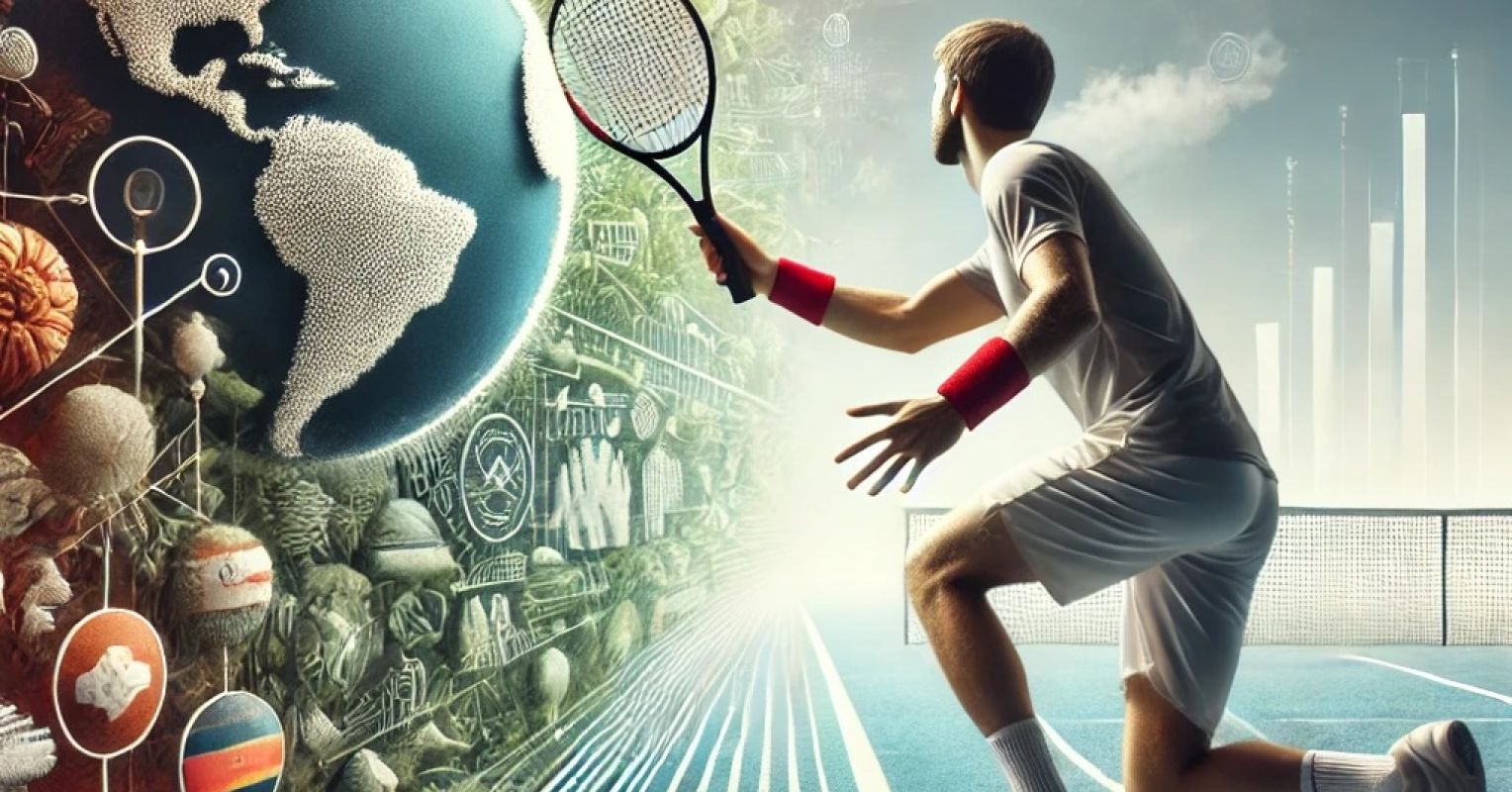Und so ist der Mikrokosmos Tennis immer auch ein Makrokosmus des Lebens.
The microcosm of tennis is always like the macrocosm of life, a key insight drawn out by Andrea Pekovic in a new autobiography that she calls autofiktion, part memoir and part fiction in which she recounts stories of her life as a tennis player and as a human being.
Petkovic was a great professional tennis player who was born in Bosnia and grew up in Darmstadt, Germany, just outside of Frankfurt. Her father, Zoran, played Davis Cup and college tennis at the University of South Carolina and introduced Andrea to the game at the age of 6.
She was ranked as high as number 9 in the world before retiring in 2022. Petkovic spent her entire life between her family’s homeland and her home in Germany. She learned to speak four languages, adding English and French to her two childhood languages.
Her discoveries in tennis brought her closer to all facets of herself. She dealt not only with victory and defeat but also with the incredible variety of experiences that happened on and off the court as she traveled the world. She was able to make it much farther in tennis than her father had in his career; most tennis players never make it to the world stage. And yet we are attracted to this game because, as Petkovic notes, the very small world of tennis runs parallel to the larger world we see in our everyday lives.
Tennis runs across three generations in my own family, and to date, we have yet to produce a professional or college level tennis player. Although I was a fan of all the American sports I watched on TV as a child, I spent summers in Mexico, where soccer rules supreme on TV and tennis was the family sport.
The way that Petkovic feels about Germany, I feel about the United States. The U.S. is my home and I have spent the majority of my time living in California and Texas. I am definitely American. At the same time, my family is Mexican, and the many years I spent in Mexico as a child and teenager created a strong link to the land of my ancestors. My mind and body might be American but something about Mexico lies both in my heart and soul.
My mom’s youngest brother was only two years older than me, and he and I would spend summers in our own homemade outdoor summer camp. On the weekends, his older brothers would drag the two of us to watch them play tennis. At first, the older brothers would play amongst themselves. But it was only a matter of time before they lured my uncle Luis Enrique (Quique for short) to play with them.
Quique was the star athlete, to say the least. His tactics on the soccer field were unquestioned, and his ability to pick up a sport early and play it well was notable. He could kill a fly using a rubber band shot from across the room. His aim was even more visible with a slingshot.
My grandmother’s house was at the very edge of San Luis Potosi, the central Mexican city to which my mother’s family had moved when she was eight years old. Quique and I would often just cross the street and head to completely open land in the high desert. This is where his slingshot skills came in handy. I felt protected knowing that he was able to play defense and offense with any stray animal that might threaten us on our excursions.
Quique shifted from soccer to tennis around age 13 and quickly became a very good player. His athletic skills allowed him to play at a pro level before eventually becoming a teaching pro. The age of 13, two years later, ended up being a time of change for me, too. I stopped playing baseball on my junior high school team.
I played some ping pong, and basketball and took a swimming class in high school. Then one day a friend asked me to play tennis. The years that I had poured into all the other playground sports and into my junior high baseball team bubbled into tennis. I took it on with a newfound passion and worked on improving.
When I went back to Mexico to visit, my uncles and I would play tennis. It was a connection to my Mexican family, especially to Quique who had been the closest thing to a big brother. Over the years, I have had a chance to play tennis with him and continue sharing outdoor activity. However, my path to tennis improvement was a lot more jagged.
Unlike Petkovic, tennis has never taken me to Davis Cup or to other sides of the world. Nevertheless, I still feel that the game of tennis, like many other games that humans play, represents a world of skill building that runs alongside the skill building we do in school and other parts of our lives. This is most evident in my lifelong search for a good tennis serve. That is a story that I tell in my new book, Mastery: How Learning Transforms our Brains, Minds and Bodies.

